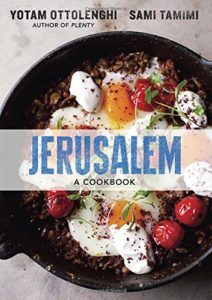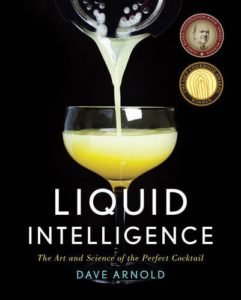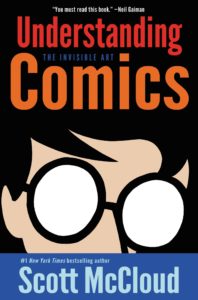Contents
Cookbooks
The Food Lab — Winner of the 2016 James Beard Award. An absolute must have for home cooks
I’ll say this again and again, The Food Lab is by far the greatest cookbook, and book, that I have ever purchased. 800+ pages of teaching that goes beyond your typical cookbook’s basic list of hit-or-miss recipes.
Kenji Lopez shows you how to plan your recipes to reuse ingredients from each other, what equipment is a must have/best bang for your buck, and how to cook nearly everything besides dessert. I’ve tried nearly 30 recipes and they’ve all been fantastic. I also learned which way to slice an onion to get stronger flavor — say what?!? Yea I know. This book is crazy cool
Kenji Lopez is the one chef you want in your corner. For example: rather than tell you to buy a $200 sous-vide, he shows you how to use a cooler to get roughly the same results before you decide you want to shell out that kind of money.
Greatest cookbook ever.
Modernist Cuisine at Home
Whereas the Food Lab is for a baller on a budget, think of Modernist Cuisine at Home as that cookbook you get when you have extra money, are tired of going to fancy restaurants, and want to learn how to make great food on your own.
Written by a Microsoft billionaire, don’t expect to see the best bang for your buck recommendations but the best tools home cooks can buy recommendations.
Also, the book is truly a work of art. Modernist Cuisine at Home pioneers a new design for recipe layouts and contains great recipes if you follow them to the nearest gram. My favorite recipe was their recipe for Korean wing sauce with pressure cooked short ribs in lettuce wraps. It had this tangy, sweet, and hot flavor that was simply amazing.
I’ve even been to restaurants and noticed they copied recipes exactly like the BLT at Bernie’s Lunch and Supper Club in Chicago.
Get it on Amazon.
Heston Blumenthal at Home
Heston Blumenthal is a British chef famous for creating bizarre flavor combinations at the Fat Duck that work like his Red Cabbage Gazpacho with Grain Mustard Ice Cream. The book contains ~4 page introductions for each chapter that go into how Heston, a Michelin star chef, thinks of food.
Many of the recipes require advanced techniques or equipment so don’t buy this thinking it will be easy. Heston is a master of ice cream and his recipe for french fries — he calls them triple-cooked chips — is amazing.
Preview it on Amazon.
Mediterranean Cooking at Home
Mediterranean Cooking at Home is written by Lynne Gigliotti. While the book contains a few good recipes, I think there are far better cookbooks out there for a similar price.
By all means, if you see it lying somewhere, pick it up and read it, but I don’t recommend you buy it.
Franklin Barbecue
Review coming soon.
Never Trust a Skinny Italian Chef
Review coming soon.
Jerusalem: A Cookbook
Jerusalem: A Cookbook is a unique introduction to the city of Jerusalem through food. I’ve made quite a few recipes from this book like pipelchuma, potato latkes, shakshuka, and krantz cakes. My favorite part of the book is how it was produced. The cover is this weird sort of squishy, glossy that looks and feels super cool.
That being said I really enjoyed learning about Jerusalem and thought the recipes were pretty good because of how diverse a city Jerusalem is and the quality of writing.
5 stars on Amazon.
Mixology
Liquid Intelligence
By David Arnold, Liquid Intelligence is a great introduction to making quality cocktails. I’d compare this book to The Food Lab but for cocktails.
You’ll learn all about acids, chemicals, and the ratios that go into cocktails. The book is full of experiments on shaken vs stirred, alcohol and sugars’relationship with taste and temperature, there’s a lot of content here. Ever consider buying a centrifuge — because clarified lime juice is so important?!? Or want to learn about nitro frozen muddling? An easy make ahead daiquiri mix?
Most of the recipes use classic spirits and you’ll read how to make blended, shaken, stirred, and drinks on the rocks properly. Like The Food Lab this is a must have introductory cocktail book.
Buy it on Amazon
Sports
Scouting Methods
Review coming soon.
Fantasy Football for Smart People
Review coming soon.
Cognitive Psychology
Thinking, Fast and Slow
Nobel Prize in Economics author, Daniel Kahneman, writes about the cognitive biases your brain is susceptible. He covers topics such as pricing theory, how we don’t understand uncertainty, and create narrative fallacies to reconcile our mistaken judgements. This book will help you understand concepts like the Madden curse and how to make decisions with uncertainty.
Thinking, Fast and Slow is more of a tome than book. It reads well but could be better served as a reference book. Each chapter ends with a memorable set of quotations that illustrate the concepts and refreshes your mind.
The book is highly influential among famous Daily Fantasy Players like Jonathan Bales, traders like Nassim Taleb, and authors like Michael Lewis — author of Moneyball and The Big Short.
More Nietzsche and Taleb than Soros, but yes, this is accurate (and cool)
— Jonathan Bales (@BalesFootball) July 6, 2017
Get Thinking, Fast and Slow on Amazon. At ~$5 at the time of this writing, it is well, well worth it.
The Black Swan — a little repetitive at times but a must read
The Black Swan is all about uncertainty. You may think means and standard deviations contain everything you need to know but that’s far from reality. In The Black Swan, Nassim Taleb breaks scenarios where the normal distribution is good and examples of all the unexpected chaos that becomes likely when it doesn’t e.g. biased polls in the 2016 presidential election.
If you’re a business analyst or someone that likes to believe what they preach, don’t buy this. Stick to books that talk about the 95% of normal times. The Black Swan is all about how unexpected the unexpected is. Clearly the normal distribution has to be wrong when used as a model of football points scored because a team can’t have negative points but people use it anyways without corrections to the “long tails“.
The 48 Laws of Power
Popular with prison inmates and celebrities, I owe getting promoted in 6 months to this book.
All too often, there’d be times at work with my boss or co-workers where I wouldn’t understand why the person felt a certain way, mostly negative towards me. 48 Laws of Power gives you memorable and historical examples of situations illustrating principles like to “Never outshine the master”.
While you can use this book for good and evil, I found it to be a great reference to understanding interpersonal relationships. I’d recommend you read it in tandem with How to Win Friends and Influence People.
Trust Me, I’m Lying: Confessions of a Media Manipulator
If you have faith in the media, DON’T BUY THIS BOOK. You’ll become a cynic and learn to look at every news outlet as the sham they mostly are.
Ryan Holiday shares some of the tricks he’s learned as an apprentice to RobertGreene, author of The 48 Laws of Power, and as the Director of Marketing for American Apparel. From things like exploiting HARO to be an expert sources for Bloomberg and Business Insider to creating fake discussions to generate buzz for his products.
Type Talk at Work
Review coming soon.
Please Understand Me II
You could use Please Understand Me in two different ways. As a case study of Carl Jung’s personality types so you can better identify situations where a co-worker and you would disagree — OR — how to exploit those who adhere to the types too literally. You’ll definitely be a wolf in sheep’s clothing this way but it can be much more fun to think about.
More in depth review coming soon.
Antifragile
Review coming soon
Data Visualization
The Visual Display of Quantitative Information
A cornerstone book for anyone just starting in data visualization. Back in 1970 this was the book on everyone’s bookshelf. Introduces the reader to important concepts for creating informative graphics. Ink vs content vs……
Understanding Comics: The Invisible Art
A strange book at first glance but this book comes highly recommended by those that have to create compelling narratives in the workplace –hello storytelling with data. You’ll learn how important it is to leave detail out of a presentation so that the viewer can internalize the message in their own way. Much like how popular songs with vague lyrics are so relatable.
Overall this a fun read if you’re looking for something new in your quest to create better visual narratives.
Economics
Algorithmic Trading
Review coming soon.
Networks, Crowds, and Markets
As far as textbooks for self-study, Networks, Crowds and Markets does a pretty great job. In the introduction the author outlines a few different directions for how to go through the chapters.
The book is full information on topics like how google works, different types of auctions, and how demolishing a road can actually improve traffic.
In an increasingly digital world, learning how networks, crowds, and markets work is becoming more and more important. I’ve been very happy with my purchase and I’m sure you will be too.
Buy it used
Economics, Organizations, and Management
Ever wonder about the practice of tenured teachers versus the Navy’s policy of “Up-Or-Out”? This is great reference book for the theory of the firm. The book covers topics like why quit your job? How corporations think about human resources. Executive and Managerial compensation and more! Full review here <LINK>
Preview the table of contents before you buy. (I’d recommend you buy used)
The Signal and the Noise
Math
Nonlinear Dynamics and Chaos
I have two books about chaos on my bookshelf. The fascinating subject about chaotic system development. I bought Nonlinear Dynamics and Chaos for fun because I think it’s absurd how most of engineering deals with linear systems.
The book is very comprehensive from an application point of view but lacks some of the mathematics you need to learn in order to fully understand the concepts.
If you want a light introduction to chaos buy this book.
Chaos: An Introduction to Dynamical Systems
Now for the heavy lifting. Chaos: An Introduction to Dynamical Systems goes over much of the same material as Nonlinear Dynamics from a more mathematical point of view. I found this book to be much better for me than the other one.
Chaos is such a fascinating topic that has been “easier” to study because of computer simulations. Yes, a butterfly flapping it’s wings in Mexico can start a hurricane. You’ll learn about cool concepts like the Cantor set (the Devil’s Staircase), binary fractions, and how to turn dynamics like the logistic map into probability distributions.
Once you read it you’ll never approach data analysis the same way again.
Probability Theory
Nonlinear Problems in Random Theory
This book is a summary of course notes by the famous electrical engineer, Norbert Wiener. More coming soon.
Introduction to Probability Theory and Its Applications
Probability Theory: The Logic of Science
E. T. Jaynes is considered a bit of a quack in physics –personally I like him — but this book comes highly recommended by statisticians. I’d consider this book a great second book on probability and the pdf is available for free online.
Jaynes is a major proponent of Jeffrey’s prior and the principle of maximum entropy in his Bayesian models. Throughout the book there are great thought experiments that illustrate concepts practically like how you’re more likely to assume you’re being tricked if you actually encountered a true psychic with the evidence to back it up.
Buy this if you’re looking for some counter-culture probability theory to give you a more holistic view of Bayesian models.
Or get the free pdf.
Physics
Philosophy of Physics
Review coming soon.
Quantum Mechanics Phillip Condon and Morse 1929
Review coming soon.
Partial Differential Equations in Physics — Arnold Sommerfeld
Review coming soon.
A briefer introduction to time
Review coming soon.
Quantum Implications: Essays in Honour of David Bohm
Review coming soon.
The Undivided Universe: An Ontological Interpretation of Quantum Theory
Review coming soon.
Design
How to use graphic design to sell things, explain things, make things look better, make people laugh, make people cry, and (every once in a while) change the world
Review coming soon.
The Non-Designer’s Design Book
Review coming soon.
Entrepreneur
How to Get Rich
A brutally honest book by the founder of Maxim. Whereas most “get rich” books tell you how you can do it, this book tells you why you’re not likely to “get rich” because you can’t take risks.
Buy this book because it’s full of entrepreneur porn that makes you see getting a regular paycheck as employee crack cocaine. How to Get Rich will help you take the leap towards being an entrepreneur or kill your dreams with a cold hard criticism of you in the process.
Ideal for people thinking of starting out on their own or entrepreneurs looking to grow their stable businesses into something more.
How to be Rich
I liked this book more for a better understanding how company executives think rather than how to get rich. More detail coming soon.
Zero to One
Review coming soon.
Philosophy
The Portable Nietzsche
Review coming soon.
Rene Girard
Review coming soon.
Coding
The Pragmatic Programmer
Review coming soon.




